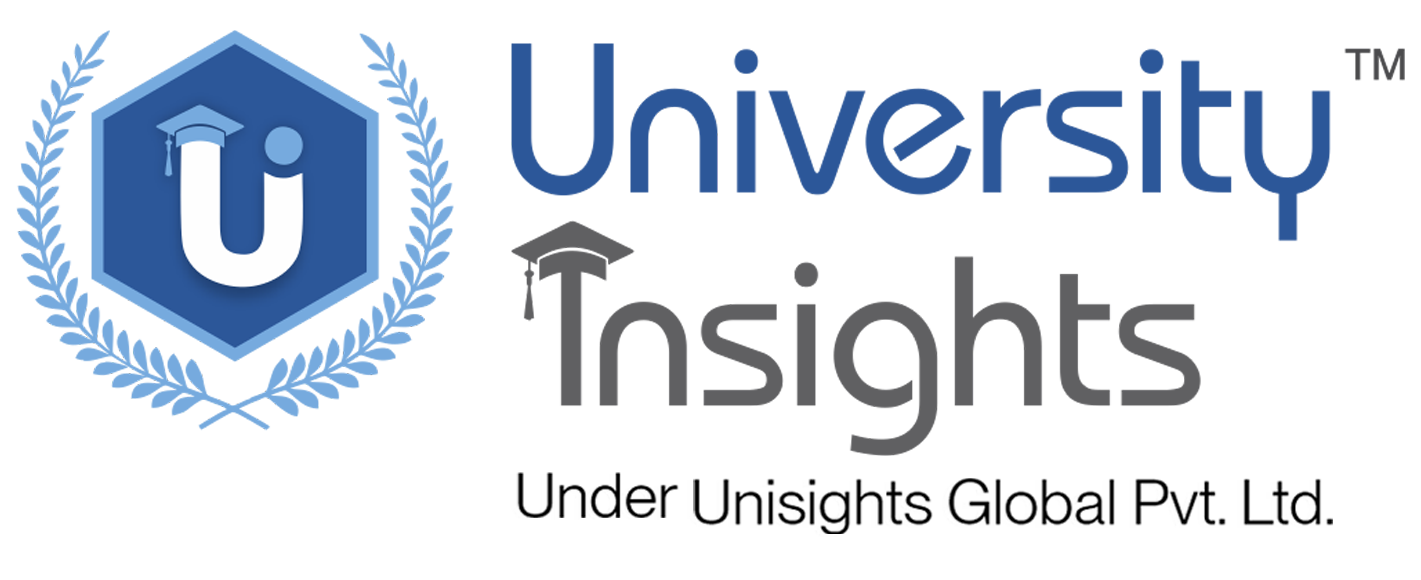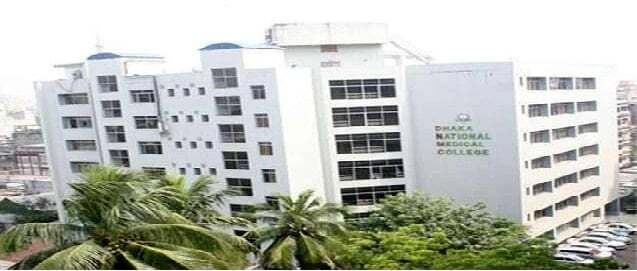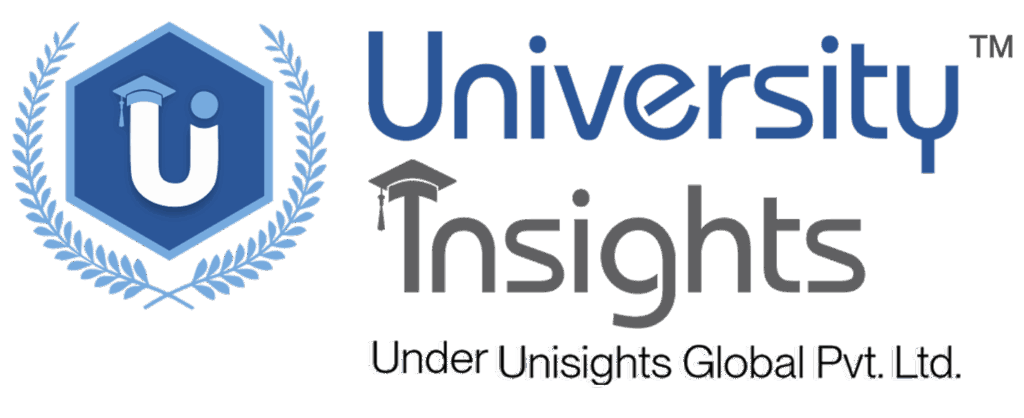Study MBBS in Denmark 2025: Best MBBS Programs in Denmark, Admission, Duration, Eligibility Criterion
Denmark is a popular destination for students pursuing medical studies abroad, offering a well-rounded MBBS degree program equivalent to MBBS in India. Renowned Danish universities, including the Technical University of Denmark, provide high-quality education and advanced research opportunities. The medium of instruction in Denmark is often English, making it accessible to international students. Each year, about 500-800 international students are admitted into medical programs across the country, with various scholarships available to help cover tuition fees. While the cost of living in Denmark can be moderate, it remains a competitive option for MBBS in Denmark due to its global recognition and quality of education.
About Denmark
| Category | Details |
|---|---|
| Capital | Copenhagen |
| Official Language | Danish (English is widely spoken, especially in academic settings) |
| Currency | Danish Krone (DKK) |
| Number of Universities | 5+ Top Universities |
| Average Tuition Fees for MBBS | Ranges between 45,000 to 120,000 DKK per year (approx. €6,000 – €16,000) for non-EU/EEA students. |
| Cost of Living in Denmark | Monthly expenses range from 6,000 to 10,000 DKK (approx. €800 – €1,200) depending on lifestyle and city. |
| Minimum and Maximum Temperature | Ranges from -1°C in winter to 22°C in summer. |
| Exchange Rate | 1 DKK ≈ 0.13 EUR or 1 DKK ≈ 11.93 INR (approximate and subject to fluctuations). |
| Climate | Temperate climate with cool winters and mild summers, suitable for adjusting to a balanced study environment. |
Cultural Insights and Geographical Overview of MBBS in Denmark
Denmark offers a blend of rich culture, high living standards, and a welcoming atmosphere for international students. Known for its vibrant cities like Copenhagen and picturesque landscapes, Denmark is home to several danish universities offering medicine in Denmark. The cost of living in Denmark is moderate, covering housing, transport, and daily needs, with scholarships available to ease expenses. The balanced lifestyle, combined with a strong academic environment, makes Denmark an attractive destination for students pursuing medical studies abroad and those looking to explore European culture.The education system in Denmark emphasizes high-quality, student-focused learning, known for its innovative teaching methods. Medical schools in Denmark offer an MBBS degree program, often equivalent to an MD, with English as the primary medium of instruction for international students. Institutions like the Technical University of Denmark and other public universities in Denmark provide modern research facilities and clinical training. The curriculum focuses on building a strong theoretical foundation, with extensive hands-on experience to prepare students for successful careers in medicine, ensuring they are well-prepared for global opportunities.
The Educational System to Study MBBS in Denmark 2025
The education system in Denmark emphasizes high-quality, student-focused learning, known for its innovative teaching methods. Medical schools in Denmark offer an MBBS degree program, often equivalent to an MD, with English as the primary medium of instruction for international students. Institutions like the Technical University of Denmark and other public universities in Denmark provide modern research facilities and clinical training. The curriculum focuses on building a strong theoretical foundation, with extensive hands-on experience to prepare students for successful careers in medicine, ensuring they are well-prepared for global opportunities
Want To Study in Denmark?

Why Study MBBS in Denmark 2025-26?
Reasons to Choose to Study MBBS in Denmark
- High-Quality Education: Danish universities like the Technical University of Denmark offer top-tier MBBS degree programs with modern facilities and experienced faculty.
- Innovative Teaching Methods: Denmark offers a well-rounded approach to medical studies, focusing on interactive learning and practical experience.
- Global Recognition: Degrees earned in medicine in Denmark are recognized worldwide, making it easier for students pursuing medical studies abroad to establish their careers.
Advantages of MBBS from Denmark for Indian Students
- Medium of Instruction: Most medical schools in Denmark offer courses in English, making it easier for Indian students seeking medical education.
- Cultural Adaptation: Denmark provides a friendly environment for international students studying in Denmark, ensuring a smooth transition.
- Scholarship Opportunities: Various scholarships to international students help cover tuition and living expenses, making MBBS in Denmark more affordable.
Safe and Student-Friendly Environment in Denmark
- Low Crime Rates: Denmark is known for its safety and peaceful environment, making it ideal for students pursuing medical studies abroad.
- Supportive Infrastructure: Denmark provides comprehensive support services, including student visa assistance and accommodation options, ensuring a comfortable stay.
- Student Communities: The presence of vibrant student communities at public universities in Denmark helps international students adjust easily.
Global Recognition of Medical Degrees from Denmark
- Widely Recognized: A degree in Denmark is respected globally, especially in Europe and equivalent to MBBS in India.
- High Employability: Graduates with an MBBS degree in Denmark find better job prospects in various countries due to the strong reputation of danish universities.
- Licensing Pathways: Denmark offers clear pathways for students to pursue further studies or practice medicine internationally.
Top Medical Schools in Denmark for Indian Students
- University of Copenhagen: Renowned for its comprehensive mbbs degree program, offering excellent research facilities.
- Aarhus University: A preferred choice among Indian students seeking a balanced academic and social life.
- Technical University of Denmark: Focused on research and practical training, making it ideal for students interested in advanced medical studies.
- University of Southern Denmark: Known for its student support services and scholarships to international students, making MBBS in Denmark at affordable cost a reality.
Want To Study in Denmark?

Quick Highlights About MBBS in Denmark
| Category | Details |
|---|---|
| Capital | Copenhagen |
| Official Language | Danish |
| Number of Top Universities | 5 (University of Copenhagen, Aarhus University, University of Southern Denmark, Aalborg University, Roskilde University) |
| Average Tuition Fees for MBBS | €6,000 – €16,000 per year (DKK 45,000 – DKK 120,000) |
| Cost of Living in Denmark | €800 – €1,200 per month |
| Recognition | Recognized by the National Medical Commission (NMC), WHO, EU |
| NEET Requirement | NEET qualification mandatory for Indian students |
| Eligibility | Bachelor’s degree, IELTS/TOEFL scores, Entrance exam |
| Affiliated Hospitals | Rigshospitalet, Aarhus University Hospital, Aalborg University Hospital |
Want To Study in Denmark?

Study MBBS in Denmark for Indian Students 2025-26
Why Denmark is the Best Choice for Indian Students to Study MBBS
- High-Quality Education: Denmark is known for its robust higher education system, offering MBBS degree programs with a strong focus on research and innovation.
- Internationally Recognized Degrees: A degree from a Danish university is globally recognized, allowing graduates to pursue medical careers or further studies internationally.
- Modern Facilities: Danish universities like the Technical University of Denmark provide state-of-the-art facilities, which greatly benefit students pursuing medical studies abroad.
English-Medium Instruction for Indian Students in Denmark
- Programs in English: Many medical schools in Denmark offer courses in English, making it accessible for international students without needing proficiency in Danish.
- Support for International Students: Universities provide language support and resources, easing the transition for Indian students seeking a smooth academic experience.
Cultural Fit for Indian Students in Denmark
- Inclusive Society: Denmark is known for its open-minded and welcoming culture, making it easier for Indian students to adapt.
- Active Student Life: The capital city of Denmark, Copenhagen, and other cities offer a vibrant student life with many cultural activities, fostering a sense of community.
Benefits for Indian Students Studying MBBS in Denmark
- Scholarships for International Students: Denmark offers various scholarships to international students, reducing the financial burden for Indian students seeking education in medicine in Denmark.
- Affordable Living Costs: While cost of living in Denmark can vary, students can find affordable housing and manage expenses with budgeting.
- Exposure to European Healthcare: Studying in Denmark provides exposure to the European healthcare system, offering students a wealth of experience.
Opportunities for Indian Students in Denmark
- Post-Graduation Work Opportunities: Denmark offers excellent opportunities for Indian students to gain practical experience after completing their studies, with pathways for work permits.
- Research and Specialization: Students can benefit from Denmark’s focus on medical research and specialization opportunities in various medical fields.
- Networking with Global Professionals: Danish universities host a diverse student body, enabling international students to build a global network of professionals and peers.
Want To Study in Denmark?

Studying MBBS Admission Process in Denmark 2025-26
Eligibility Criteria for Studying MBBS in Denmark 2025-26
NEET Qualification:
- Indian students must qualify for the National Eligibility cum Entrance Test (NEET) to be eligible for MBBS admission in Denmark.
- For the 2025 academic year, the NEET qualifying marks are:
- 50th percentile (720-162) for general category students.
- 40th percentile (161-127) for SC/ST/OBC categories.
Academic Requirements:
- Students must have completed their 12th grade with Physics, Chemistry, Biology, and English.
- The minimum marks required in 12th grade are:
- 50% for general category students.
- 45% for SC/ST/OBC students.
Required Documents for Studying MBBS in Denmark 2025-26
- Required Documents:
- Valid passport
- 12th-grade transcripts and certificates
- English proficiency test scores
- A motivational letter explaining the desire to study medicine in Denmark
- Letter of recommendation from school or teachers
- Passport-sized photographs
Application Process and Deadlines to Study MBBS in Denmark 2025
- Research and Selection: Students need to first identify Danish universities offering an MBBS degree program that matches their interests and academic profile.
- Online Application Submission: Applications are typically submitted online through the university’s portal or via Denmark’s national application system. Most applications open in February and close by April.
- Application Fees: A non-refundable application fee is often required, varying depending on the university.
- Interview Process: Some medical schools in Denmark may require applicants to attend an interview or assessment session to gauge their interest and commitment to studying medicine in Denmark.
- Admission Decision: Offers are generally announced by June or July, allowing students to prepare for the visa process and other arrangements.
Visa Requirements and Process for Studying MBBS in Denmark
- Student Visa Application: International students, including those from India, must apply for a student visa (Residence Permit) to study in Denmark.
- Documents for Visa Application:
- Acceptance letter from a Danish university offering an MBBS degree program.
- Proof of financial stability to cover tuition fees and cost of living in Denmark.
- Valid passport and copies.
- Proof of accommodation in Denmark.
- Health insurance covering medical expenses.
- Biometric Information: Students may need to provide biometric data (fingerprints and photos) as part of the application process.
- Processing Time: The visa process typically takes 2-3 months, so it is advisable to apply well in advance.
- Residence Permit Validity: The permit is usually valid for the duration of the MBBS degree program and can be extended if necessary for completing the course or pursuing further studies.
Want To Study in Denmark?
Fee Structure and Costs to Study MBBS in Denmark 2025-26
Tuition Fees to Study MBBS in Denmark
| Category | Details |
|---|---|
| Average Tuition Fees | EUR 10,000 – 18,000 per year |
| Public Universities | EUR 7,000 – 12,000 per year |
| Private Universities | EUR 12,000 – 18,000 per year |
| Technical University of Denmark | EUR 8,500 – 14,000 per year |
| Additional Costs | Laboratory fees, exam fees may vary |
MBBS Fees Structure in Denmark 2025
| Year of Study | Tuition Fees (EUR) | Additional Fees (EUR) | Total Annual Cost (EUR) |
|---|---|---|---|
| Year 1 | 10,000 – 15,000 | 1,000 – 2,000 | 11,000 – 17,000 |
| Year 2 | 10,000 – 15,000 | 1,000 – 2,000 | 11,000 – 17,000 |
| Year 3 | 10,000 – 15,000 | 1,500 – 2,500 | 11,500 – 17,500 |
| Year 4 | 10,000 – 15,000 | 1,500 – 2,500 | 11,500 – 17,500 |
| Year 5 | 10,000 – 15,000 | 2,000 – 3,000 | 12,000 – 18,000 |
| Internship Year | No tuition, minimal fees | 500 – 1,000 | 500 – 1,000 |
Cost of Living for Indian Students in Denmark
| Expense Category | Monthly Cost (EUR) | Annual Cost (EUR) |
|---|---|---|
| Accommodation | 300 – 600 | 3,600 – 7,200 |
| Food and Groceries | 200 – 350 | 2,400 – 4,200 |
| Transportation | 50 – 100 | 600 – 1,200 |
| Health Insurance | 50 – 100 | 600 – 1,200 |
| Miscellaneous | 100 – 200 | 1,200 – 2,400 |
| Total Monthly | 700 – 1,350 | 8,400 – 16,200 |
Hidden Costs of Studying MBBS in Denmark
| Category | Estimated Cost (EUR) |
|---|---|
| Visa Fees | 300 – 400 |
| Medical Check-ups | 100 – 200 |
| Books and Study Materials | 300 – 500 per year |
| Travel and Flights | 600 – 1,200 (round-trip) |
| Language Proficiency Tests | 150 – 250 |
| Student Union Fees | 50 – 150 per year |
Financial Planning for MBBS in Denmark
| Planning Aspect | Details |
|---|---|
| Scholarships | Available for international students through Danish Government and universities |
| Part-time Work Opportunities | Up to 20 hours/week during semesters; full-time during holidays |
| Student Loans | Accessible through Danish banks with favorable interest rates for students |
| Budgeting Tips | Use public transport, cook meals at home, and apply for student discounts |
| Health Insurance Coverage | Mandatory; costs range from EUR 50 – 100 per month |
Want To Study in Denmark?

Top Ranked Medical Colleges in Denmark to Study MBBS 2025-26
Top Medical College in Denmark for MBBS
| University Name | Location | Annual Tuition Fees (INR) |
|---|---|---|
| University of Copenhagen | Copenhagen | 8,60,000 – 12,90,000 |
| Aarhus University | Aarhus | 7,74,000 – 11,18,000 |
| University of Southern Denmark | Odense, Esbjerg | 7,30,000 – 10,30,000 |
| Aalborg University | Aalborg | 6,50,000 – 9,00,000 |
| Technical University of Denmark | Kongens Lyngby | 7,00,000 – 10,90,000 |
| Roskilde University | Roskilde | 6,25,000 – 8,80,000 |
| VIA University College | Aarhus, Horsens | 5,50,000 – 7,70,000 |
| University College Absalon | Kalundborg | 5,20,000 – 7,10,000 |
| Metropolitan University College | Copenhagen | 6,00,000 – 8,20,000 |
| UCL University College | Odense, Vejle | 5,80,000 – 7,90,000 |
Want To Study in Denmark?

Advantages of Studying MBBS in Denmark 2025-26
Career Opportunities After MBBS in Denmark
- Studying medicine in Denmark opens up global job prospects, with opportunities in hospitals, research institutions, and private practices.
- Denmark has a consistent demand for medical professionals, providing a promising job market for international graduates.
- Students who complete their MBBS degree in Denmark can pursue careers in other European countries or return to their home countries after meeting local licensing requirements.
Scholarships for MBBS in Denmark
- Denmark provides various scholarships and financial aid opportunities to support international students, helping to cover part of the tuition and living costs.
- Scholarships can significantly reduce the financial burden of studying MBBS degree program in Denmark, making it more accessible for students from diverse backgrounds.
- These financial aids are typically based on academic merit or financial need and can be sought through both government and danish universities.
High Standard of Medical Education
- Danish medical education is known for its emphasis on practical training and clinical exposure, providing students with hands-on experience throughout their studies.
- With access to advanced research facilities, students pursuing medical studies can engage in innovative research during their MBBS course.
- Denmark’s globally recognized medical degrees ensure that graduates are well-prepared to practice medicine in Denmark and various other countries.
Post-Graduation Opportunities After MBBS in Denmark
- After completing MBBS in Denmark, students can pursue further specialization in fields such as surgery, cardiology, and pediatrics.
- Denmark also offers opportunities for those interested in medical research, allowing graduates to work in research roles or continue in academia.
- Graduates can apply for residency programs within Denmark or in other European Union countries, gaining more clinical experience.
Duration of MBBS Program in Denmark
- The MBBS degree program in Denmark typically spans six years, which includes five years of academic coursework and one year of a mandatory internship.
- The curriculum is structured to combine theoretical knowledge with extensive practical training, ensuring comprehensive preparation for a medical career.
Pathway to Medical Licensing After MBBS from Denmark
- To practice medicine in Denmark, international MBBS graduates must pass the required medical licensing exams.
- Medium of instruction in Denmark is important for licensing and employment, as Danish is often required for interacting with patients and working in healthcare facilities.
- Students returning to their home countries, like India, will need to meet local medical council requirements, such as passing relevant screening tests.
Want To Study in Denmark?

Course Details and Curriculum of Studying MBBS in Denmark 2025-26
- Denmark is known for integrating technology into its medical education system, using virtual reality and simulation labs for practical training.
- Medical schools in Denmark may utilize electronic health record systems to train students in patient data management.
- Advanced telemedicine technologies are also introduced, allowing students to understand remote patient monitoring and digital healthcare solutions.
Table: MBBS Curriculum and Course Details in Denmark
Year Phases Focus Areas 1st Year Basic Sciences Anatomy, Physiology, Biochemistry, Introduction to Medical Ethics 2nd Year Pre-Clinical Pathology, Microbiology, Pharmacology, Clinical Skills 3rd Year Clinical Training Internal Medicine, Surgery, Pediatrics, Obstetrics and Gynecology 4th Year Advanced Clinical Advanced Medicine, Surgery, Psychiatry, Dermatology 5th Year Specialization Elective Specialties, Research Projects, Community Medicine 6th Year Internship Rotational Internship across various departments, including Internal Medicine, Surgery, Emergency Medicine MBBS Curriculum and Structure in Denmark
- The MBBS degree program in Denmark spans over six years, comprising pre-clinical, clinical, and internship phases.
- In the initial years, students focus on foundational subjects like anatomy, biochemistry, and medical ethics.
- The clinical years emphasize hands-on training, allowing students to gain practical skills in internal medicine, surgery, and other specialties.
Duration of MBBS in Denmark
- The duration of the MBBS program in Denmark is typically six years, which includes five years of academic coursework and one year of a mandatory internship.
- This structure ensures that students are well-prepared for both theoretical knowledge and practical experience, providing a solid foundation for medical practice.
Academic Support Services in Denmark
- Danish universities provide a variety of academic support services such as tutoring, study groups, and access to research libraries.
- Students pursuing medical studies can benefit from mentoring programs and workshops that focus on exam preparation and clinical skills.
- Universities also offer language support services for international students, helping them adapt to the medium of instruction in both Danish and English.
Research and Laboratory Facilities for MBBS Students
- Medical schools in Denmark are equipped with state-of-the-art research facilities, allowing students to participate in cutting-edge research.
- Students have access to laboratories specializing in biochemistry, pathology, and genetics, providing hands-on experience in medical research.
- Research collaboration with public universities in Denmark enables students to contribute to medical innovations.
Online Learning Resources and Platforms for MBBS Students
- Danish universities utilize online learning platforms to supplement classroom teaching, providing access to lecture recordings, e-books, and interactive modules.
- Students can engage in virtual simulations and case study discussions through these platforms, enhancing their clinical knowledge.
- These resources are especially beneficial for international students pursuing medical studies, enabling them to balance self-study and practical training.
Use of Technology in Medical Education in Denmark
- Denmark is known for integrating technology into its medical education system, using virtual reality and simulation labs for practical training.
- Medical schools in Denmark may utilize electronic health record systems to train students in patient data management.
- Advanced telemedicine technologies are also introduced, allowing students to understand remote patient monitoring and digital healthcare solutions.
- Advanced telemedicine technologies are also introduced, allowing students to understand remote patient monitoring and digital healthcare solutions.
Want To Study in Denmark?

Studying MBBS in Denmark Syllabus
MBBS Syllabus in Denmark 2025
| Semester | Subjects |
|---|---|
| Semester 1 | Anatomy, Physiology, Biochemistry, Medical Terminology, Histology |
| Semester 2 | Advanced Anatomy, Physiology, Biochemistry, Genetics, Introduction to Medical Ethics |
| Semester 3 | Pathology, Microbiology, Pharmacology, Immunology, Introduction to Clinical Skills |
| Semester 4 | Advanced Pathology, Microbiology, Pharmacology, Medical Biostatistics, Basic Clinical Skills |
| Semester 5 | Internal Medicine, General Surgery, Pediatrics, Obstetrics & Gynecology, Radiology |
| Semester 6 | Cardiology, Respiratory Medicine, Gastroenterology, Neurology, Endocrinology |
| Semester 7 | Psychiatry, Dermatology, Orthopedics, Ophthalmology, ENT (Ear, Nose, and Throat) |
| Semester 8 | Oncology, Community Medicine, Family Medicine, Emergency Medicine, Elective Specialties |
| Semester 9 | Advanced Clinical Rotations in Internal Medicine, Surgery, Pediatrics, and Obstetrics & Gynecology |
| Semester 10 | Public Health, Research Methodology, Geriatrics, Forensic Medicine, Medical Ethics and Law |
| Internship | Rotational Internship: Internal Medicine, Surgery, Pediatrics, Emergency Medicine, Psychiatry |
MBBS Internship Structure and Details in Denmark
- The internship phase is typically one year and is mandatory for all MBBS students.
- It involves rotations across major hospital departments like internal medicine, surgery, pediatrics, and gynecology.
- The focus is on practical training, where students apply their theoretical knowledge in real-world clinical settings, interacting with patients under the supervision of experienced doctors.
- The internship is crucial for obtaining a medical license in Denmark.
Licensing Exams After MBBS in Denmark
- After completing the MBBS degree, graduates must pass the Denmark Medical Licensing Exam (DMLEx).
- The exam assesses clinical skills, medical knowledge, and the ability to provide patient care.
- Passing this exam is necessary to obtain a license to practice medicine in Denmark or other European countries.
- Some students may also need to pass language proficiency tests like Danish language exams if they intend to work in Danish-speaking environments.
Ethical Practices in Medical Education in Denmark
- Danish medical education emphasizes ethical considerations in healthcare, including patient privacy, informed consent, and confidentiality.
- Students learn about cultural sensitivity and the importance of patient autonomy.
- Ethics courses are integrated into the curriculum to ensure that future doctors adhere to high moral standards in their practice.
Environmental Sustainability in Medical Universities in Denmark
- Medical universities in Denmark focus on sustainable practices in healthcare and research.
- There is an emphasis on eco-friendly campus initiatives, including waste reduction, recycling, and energy efficiency.
- Medical research often explores the impact of environmental factors on health, promoting green practices within the healthcare system.
- Universities encourage students to adopt sustainable healthcare solutions in their future medical practice, emphasizing the role of doctors in addressing climate-related health issues.
Want To Study in Denmark?

Opportunities and Career Prospects After Studying MBBS in Denmark 2025-26
Career and Job Prospects After MBBS in Denmark
- Denmark provides an MBBS degree that is recognized globally, offering graduates a strong foundation for medical practice or further specialization.
- Denmark offers a wealth of opportunities in public and private hospitals, research institutions, and clinics.
- Many graduates choose to pursue MBBS in Denmark due to the possibility of working in high-standard Danish healthcare facilities, which are known for their advanced medical technology and patient care.
- Job roles include general practitioners, specialists, and medical researchers. Alumni networks and connections with Danish universities help ease the job search.
Higher Studies After MBBS in Denmark
- Many universities in Denmark offer options for postgraduate studies in various medical fields, including MD and Ph.D. programs.
- The MBBS degree program as MD allows students to specialize in areas like cardiology, neurology, or public health, leveraging the variety of study subjects available at Danish institutions.
- The higher education in Denmark is designed to support continuous learning, with access to research opportunities and a large variety of study subjects.
- Denmark has a long tradition of medical education, fostering a conducive environment for advanced medical studies and research.
Licensing and Practice After MBBS in Denmark
- To practice medicine in Denmark, graduates need to complete a licensing exam and a mandatory internship period.
- The licensing process ensures that international students pursuing medical studies meet Danish standards of care, enabling them to work in the healthcare system.
- The need to know about MBBS in Denmark includes understanding the licensing requirements, which may differ slightly depending on the degree from a Danish university and the student’s home country.
- Denmark may require additional language proficiency for non-native speakers to ensure effective communication with patients.
Part-Time Work Opportunities for MBBS Students in Denmark
- Denmark offers part-time job opportunities for international students, allowing them to gain practical experience alongside their studies.
- Student visa regulations permit international students to work part-time for up to 20 hours per week during semesters.
- International students studying in Denmark can find opportunities in research labs, clinics, or university support services, which complement their study medicine in Denmark.
- Working part-time helps students manage the cost of living in Denmark while gaining hands-on experience in the Danish healthcare system.
Post-MBBS Job Placement Services in Denmark
- Danish universities provide job placement services to assist graduates in finding suitable employment opportunities after completing their MBBS.
- Denmark is known for its efficient healthcare system, which attracts employers seeking well-trained medical graduates.
- Job fairs and career counseling sessions are often organized by universities that offer MBBS programs, helping graduates connect with potential employers.
- Students can benefit from the network of medical schools in Denmark, which may provide direct links to job openings in hospitals and clinics.
Alumni Network for MBBS Graduates from Denmark
- The degree from a Danish university often comes with access to a strong alumni network, offering mentorship and job referrals.
- Many universities in Denmark maintain active alumni associations, enabling current students and recent graduates to build professional connections.
- Alumni from Danish medical programs often work in prominent roles across Europe and other regions, providing valuable insights and guidance.
- Students pursuing medical studies abroad in Denmark can leverage this network for international job opportunities and career growth.
Alumni Success Stories
- Alumni success stories highlight how Denmark offers excellent opportunities for students who complete their MBBS degree.
- Many international students pursuing medical studies have advanced to prestigious positions in hospitals, research institutions, and academic roles.
- Graduates often share their experiences of how the higher education system in Denmark helped them achieve their career goals.
- Success stories often emphasize the benefits of studying medicine in Denmark, including access to modern facilities and a collaborative learning environment.
Common Challenges Faced by International MBBS Students in Denmark
- Adapting to the education system in Denmark and understanding local healthcare practices can be challenging initially.
- Transportation cost in Denmark and the overall cost of living in Denmark may be higher compared to some other study destinations, requiring careful financial planning.
- Language barriers can be an issue for students unfamiliar with Danish, although many universities offer English-taught programs.
- Denmark may require applicants to complete certain assessments or language tests, which can add to the preparation process.
Want To Study in Denmark?

Studying MBBS in Denmark vs MBBS in India 2025-26
| Parameter | MBBS in Denmark | MBBS in India |
|---|---|---|
| Degree Type | MD (Aligned with European standards) | MBBS (National standards) |
| Tuition Fees | €12,000 – €20,000 per year | ₹5,00,000 – ₹10,00,000 per year (private) |
| Duration | 6 years (includes clinical training) | 5.5 years (includes 1-year internship) |
| Cost of Living | €800 – €1,200 per month | ₹10,000 – ₹20,000 per month |
| Transportation Cost | €50 – €80 per month | ₹1,000 – ₹3,000 per month |
| Language of Instruction | Primarily English, some courses in Danish | English and regional languages |
| Post-Graduation Opportunities | High demand in EU countries, US | Opportunities in India and abroad |
| Recognition in India | Requires FMGE/NExT exam | Direct licensing through NMC |
| Clinical Exposure | Focus on research and specialized training | High patient load and hands-on experience |
| Cultural Experience | Exposure to a multicultural environment | Rich cultural diversity within the country |
| Scholarships and Financial Aid | Limited, varies by university and program | Available through government schemes and institutions |
| Job Market After Graduation | EU residency programs, research roles | Private practice, government roles, post-graduate studies |
Want To Study in Denmark?
Studying MBBS in Denmark vs MBBS in Other Countries 2025-26
Why Choose Denmark Over Other Countries for MBBS?
- Quality of Education: Denmark offers a wealth of opportunities in medical education. The higher education system in Denmark is renowned for its focus on research-based learning, providing students with a strong foundation in both theoretical and practical aspects of medicine.
- Global Recognition: Denmark provides an MBBS degree program that is widely recognized in Europe, allowing graduates to pursue further studies or medical practice in the European Union. This recognition is crucial for those aiming for international medical careers.
- Diverse Study Subjects: A large variety of study subjects available at Danish universities makes it easier for students to specialize in areas of interest. The variety of study subjects available ensures that students receive a comprehensive education.
- Practical Training: Pursue MBBS in Denmark due to its great emphasis on hands-on experience and clinical exposure. Danish medical schools integrate practical training with classroom learning, giving students the skills needed for real-world medical practice.
- Transportation Cost in Denmark: Students should consider the transportation cost in Denmark, which generally ranges from €50 to €80 per month, making it more affordable compared to some other European countries. This helps in budgeting living expenses during the study period.
Comparison of MBBS in Denmark vs Other MBBS Abroad Destinations
Parameter MBBS in Denmark MBBS in Germany MBBS in the UK MBBS in Australia MBBS in Canada Duration 6 years (includes clinical training) 6 years 5-6 years 5-6 years 4 years (after undergraduate degree) Tuition Fees €12,000 – €20,000 per year Free to €10,000 per year (public universities) £25,000 – £40,000 per year AUD 50,000 – AUD 70,000 per year CAD 25,000 – CAD 60,000 per year Cost of Living €800 – €1,200 per month €700 – €1,000 per month £1,000 – £1,500 per month AUD 1,500 – AUD 2,500 per month CAD 1,200 – CAD 2,000 per month Transportation Cost €50 – €80 per month €40 – €70 per month £70 – £120 per month AUD 100 – AUD 150 per month CAD 80 – CAD 150 per month Language of Instruction Primarily English, some courses in Danish German, some English courses available English English English Post-Graduation Opportunities High demand in EU countries, US Strong prospects within EU and globally High demand within the UK and Commonwealth Recognized in Commonwealth countries Opportunities in North America Recognition in Home Country Requires FMGE/NExT in India, recognized in EU Varies, may require licensing exams Generally recognized, licensing required Recognized in Commonwealth countries Requires licensing exams like MCCQE Research Opportunities Strong focus on medical research Extensive research facilities Top-tier research universities High research focus in medicine Focus on cutting-edge research Clinical Exposure Focused on advanced clinical training Emphasis on patient interaction and practice Intensive hospital-based training Emphasis on real-world patient exposure Hands-on clinical training in hospitals
Want To Study in Denmark?

Scholarships and Financial Aids to Study MBBS in Denmark 2025-26
Scholarships for MBBS in Denmark
- Danish Government Scholarships:
- Funded by the Ministry of Higher Education and Science, these scholarships are provided to highly qualified international students from non-EU/EEA countries.
- They offer full or partial tuition fee waivers and may include living cost allowances.
- Erasmus+ Program:
- Available to international students, including those pursuing MBBS in Denmark, the Erasmus+ program provides funding for studies, internships, and other exchange opportunities within the EU.
- University-Specific Scholarships:
- Many universities in Denmark, such as the University of Copenhagen and Aarhus University, provide scholarships for international students, which may cover part of the tuition fees for those pursuing an MBBS degree program as MD.
- These scholarships are merit-based and focus on academic performance and the potential of the student.
Financial Aids and Grants for Pursue MBBS in Denmark
- Nordplus Program:
- Available for students from Nordic or Baltic countries, this program provides grants for study exchanges in Denmark, making it easier for students to cover some of their expenses.
- Student Loans:
- International students may have access to student loans through various Danish financial institutions, though these are more commonly available for EU/EEA students.
- Private Grants and Foundations:
- Denmark has a long tradition of supporting education through private foundations. Organizations like the Lundbeck Foundation, Novo Nordisk Foundation, and Carlsberg Foundation provide grants to students studying various medical fields, including MBBS.
- These grants typically focus on research projects or medical training programs and can be applied for directly through the respective foundations.
How to Apply for Scholarships and Financial Aids to Study MBBS in Denmark
- Application Process for Danish Government Scholarships:
- Applications for these scholarships are submitted directly through the universities where students have been admitted to MBBS programs.
- Students need to provide proof of admission, academic records, and any additional requirements specified by the university.
- Applying for University-Specific Scholarships:
- Each university has its criteria, and students need to check the eligibility and application process on the official university websites.
- Applications typically require a motivation letter, academic transcripts, and proof of language proficiency.
- Steps for Erasmus+ and Nordplus Programs:
- Students interested in Erasmus+ should apply through their home universities, which coordinate exchanges with Danish institutions.
- Nordplus requires coordination with both home and host universities within the Nordic and Baltic regions.
- Application Process for Danish Government Scholarships:
Want To Study in Denmark?

MBBS Options for Indian Students other than Studying MBBS in Denmark 2025
Popular Countries for Indian Students Besides Denmark for MBBS
- Germany:
- Offers state-subsidized tuition for medical programs, making it more affordable compared to many countries.
- Known for its advanced healthcare system and research-oriented education.
- Most programs are in German, requiring proficiency in the language.
- Russia:
- A popular choice due to its lower tuition fees compared to Western Europe and the USA.
- Many universities offer MBBS programs in English, making it accessible to Indian students.
- The cost of living is lower, but students must adapt to a different culture and climate.
- Ukraine:
- Known for offering affordable medical education with several universities recognized by the World Health Organization (WHO).
- Offers English-taught MBBS programs.
- The geopolitical situation can be a concern for some students.
- Philippines:
- The education system is closely aligned with the US, and the medium of instruction is English, making it an attractive option.
- Offers a large variety of study subjects, providing comprehensive training in clinical skills.
- Lower tuition fees and living costs make it popular among Indian students.
- China:
- Several universities offer MBBS programs in English and are recognized by the Medical Council of India (MCI).
- Offers modern infrastructure and a growing focus on international students.
- Cultural differences and language barriers outside academic settings can be challenging.
Feasible Alternatives to MBBS in Denmark
- Pursue MBBS in Denmark due to its great focus on research and practical training, but other countries also provide competitive alternatives:
- Germany for those seeking high-quality education with minimal tuition fees.
- Russia and Ukraine for cost-effective options with English-taught programs.
- The Philippines for students who prefer an English-speaking environment with an education system modeled on the US.
- China for modern facilities and globally recognized degrees.
Pros and Cons of Each MBBS Destination Compared to Denmark
| Country | Pros | Cons |
|---|---|---|
| Denmark | – High research orientation in MBBS degree program as MD – Access to EU post-graduation opportunities – Strong emphasis on research and innovation – Large variety of study subjects available | – High tuition fees compared to Eastern Europe – Living and transportation cost in Denmark is higher – Requires FMGE/NExT exam for practicing in India |
| Germany | – Low or no tuition fees at public universities – High-quality education with advanced facilities – Recognized across the EU | – Most programs require German language proficiency – Competitive admission process |
| Russia | – Affordable tuition fees – English-taught programs – Many universities are recognized by WHO and NMC | – Harsh climate and cultural differences – Language barriers outside academic settings |
| Ukraine | – Low cost of living and tuition – Several English-taught MBBS programs – Easy admission process without entrance exams | – Geopolitical instability in recent years – Varies in quality of education across institutions |
| Philippines | – English as the medium of instruction – US-aligned education system – Low tuition and living costs | – Requires a BS degree before starting the medical course – Tropical climate can be difficult to adjust for some |
| China | – Modern facilities with growing emphasis on international education – Some universities recognized by NMC – Affordable tuition compared to the West | – Language barriers outside the classroom – Cultural adaptation required |
Want To Study in Denmark?
Living Cost while you Study MBBS in Denmark 2025-26
Student Lifestyle and Culture in Denmark
- Student Life:
- Denmark offers a wealth of opportunities for student engagement, from cultural festivals to academic events. The variety of study subjects available at Danish universities allows students to explore different areas of interest outside their core medical studies.
- Students can engage in various activities through clubs and societies, fostering a balanced lifestyle alongside their academic pursuits.
- Cultural Integration:
- Denmark has a long tradition of welcoming international students, making it easier for newcomers to adapt to the local culture. The country’s focus on inclusivity ensures that international students feel at home, creating a vibrant and diverse student community.
Safety and Accommodation for International Students to Study MBBS in Denmark 2025
- Safety:
- Denmark is considered one of the safest countries in Europe, offering a secure environment for students. The safety of students is a top priority, with low crime rates and a strong sense of community.
- University campuses are equipped with security measures, and local communities are generally supportive of international students.
- Accommodation:
- A variety of accommodation options are available, ranging from university dormitories to private rentals. Most universities provide assistance in finding suitable housing for international students.
- Monthly accommodation costs range from €400 to €800, depending on location and type of housing. Living in university-provided accommodation is often more affordable than renting privately.
Comparative Living Costs for Medical Students in Denmark vs Other Countries
| Expense Type | Denmark | Germany | Russia | Philippines | UK |
|---|---|---|---|---|---|
| Accommodation | €400 – €800 per month | €300 – €600 per month | €150 – €300 per month | €100 – €300 per month | £400 – £800 per month |
| Food | €200 – €300 per month | €150 – €250 per month | €100 – €200 per month | €100 – €150 per month | £150 – £250 per month |
| Transportation Cost in Denmark | €50 – €80 per month | €40 – €70 per month | €20 – €50 per month | €20 – €50 per month | £70 – £120 per month |
| Total Monthly Living Costs | €800 – €1,200 | €600 – €900 | €400 – €600 | €300 – €500 | £800 – £1,200 |
- The living cost in Denmark is higher compared to countries like Russia and the Philippines, but it comes with access to a robust higher education system in Denmark and a high standard of living. The comparative costs show that while Germany may be a close alternative, Denmark offers unique advantages in terms of quality education and safety.
Language and Communication Support in Denmark for International Students
- Language of Instruction:
- While many universities in Denmark offer MBBS programs in English, learning basic Danish can be beneficial for everyday interactions and clinical practice.
- Free or low-cost Danish language courses are often available to international students, helping them integrate better into the local community.
- Communication Support:
- Universities provide orientation programs and language support services, ensuring that international students can communicate effectively within their academic and social environment.
Support Services for International Students to Study MBBS in Denmark
- University Support Services:
- Denmark provides an MBBS degree with extensive support through university services, such as academic counseling, career guidance, and mental health support.
- Many universities have international offices dedicated to assisting students with visa processes, accommodation, and other logistical needs.
- Financial Guidance:
- For students pursuing MBBS in Denmark due to its great reputation, universities offer guidance on managing finances, including insights into scholarships, part-time job opportunities, and managing transportation costs.
Extracurricular Activities and Student Clubs in Denmark
- Student Clubs:
- Denmark offers a wealth of student clubs and societies, from sports to cultural groups, allowing students to develop skills outside of their academic work.
- Engaging in these activities helps students build networks, improve their social skills, and gain a deeper understanding of Danish culture.
- Extracurricular Opportunities:
- Medical students can participate in seminars, workshops, and community outreach programs organized by universities. These activities enrich the student experience and complement the large variety of study subjects available.
Cultural Adaptation and Support Services
- Cultural Adaptation Programs:
- Danish universities provide cultural adaptation programs to help international students adjust to life in Denmark. These programs introduce students to Danish traditions, social norms, and daily life.
- Support Networks:
- Peer mentoring programs and buddy systems are common, pairing new international students with those who have been in Denmark longer. This helps ease the transition into life in a new country.
- Access to Healthcare:
- International students studying MBBS in Denmark have access to the country’s healthcare services. While some services may be covered by health insurance, students are encouraged to learn about local healthcare practices as part of their adaptation process.
Want To Study in Denmark?

Health and Safety While Studying MBBS in Denmark
Healthcare Facilities for International Students in Denmark
- Denmark provides an MBBS degree program as MD and offers access to one of the best healthcare systems in Europe.
- International students have access to public healthcare upon registering with the local municipality, receiving a health card (yellow card) for medical services.
- Many universities in Denmark offer MBBS programs that include access to on-campus medical facilities for minor health issues and referrals to local hospitals for specialized care.
- The variety of study subjects available ensures that medical students gain practical experience within the Danish healthcare system during their clinical training.
Health Insurance Requirements for MBBS Students in Denmark
- Health insurance is mandatory for non-EU students studying in Denmark, ensuring coverage for medical treatments and emergencies.
- Students from EU/EEA countries can use their European Health Insurance Card (EHIC) for healthcare services in Denmark.
- Non-EU students must arrange private health insurance before arriving in Denmark, covering the period until they are registered and eligible for Danish public healthcare.
- Universities provide guidance on obtaining appropriate health insurance plans that align with Denmark’s requirements.
Vaccination and Medical Check-up Requirements for MBBS Students
- Before starting their studies, students must undergo a medical check-up to meet health standards for studying MBBS in Denmark.
- Denmark has a long tradition of prioritizing public health, requiring international students to have up-to-date vaccinations like MMR (Measles, Mumps, Rubella) and Hepatitis B.
- Some universities may require additional vaccinations for clinical placements, which are essential to know about MBBS in Denmark.
- It is recommended to carry a vaccination record and ensure compliance with any specific university requirements.
Safety Tips and Resources for Students in Denmark
- Denmark is one of the safest countries for international students, with low crime rates and a welcoming environment.
- Students should register with local authorities upon arrival to access resources like police and emergency services.
- Knowing emergency contact numbers, such as 112 for medical emergencies, is crucial for all international students.
- Universities provide safety workshops as part of orientation, offering practical advice on daily safety and transportation cost in Denmark, which typically ranges from €50 to €80 per month.
- It is advisable to stay informed about local laws and regulations to ensure a smooth and safe living experience.
Mental Health and Counseling Services for Students in Denmark
- Many universities in Denmark offer dedicated mental health and counseling services, emphasizing the importance of well-being while pursuing an MBBS degree.
- Counseling services include one-on-one sessions, workshops on stress management, and group therapy sessions.
- Denmark offers a wealth of external mental health resources, such as helplines and community support centers, that cater to international students.
- Students are encouraged to reach out for support if they face challenges adapting to the academic or cultural environment in Denmark.
Pre-Departure Checklist for Students Heading to Denmark
- Documents:
- Passport, visa (for non-EU students), and admission letter from a Danish university.
- Proof of health insurance coverage and vaccination records.
- Financial proof for covering living expenses, including the transportation cost in Denmark.
- Travel Arrangements:
- Book flights early and arrange airport pickup if offered by the university.
- Familiarize with transportation options in Denmark for smooth travel upon arrival.
- Cultural Readiness:
- Learn basic Danish phrases to facilitate daily interactions.
- Understand Denmark’s social norms and local culture to adapt more quickly.
- Financial Planning:
- Budget for living costs, including accommodation, food, and other expenses during the initial months.
- Research available scholarships and grants that can support living expenses in Denmark.
Orientation Programs for International Students in Denmark
- Universities in Denmark offer comprehensive orientation programs to help international students settle into their new environment.
- Orientation programs cover academic expectations, understanding the higher education system in Denmark, and practical matters like opening a bank account and registering with local authorities.
- Students are introduced to a large variety of study subjects available at Danish universities, helping them navigate their academic journey.
- Orientation sessions also include campus tours, city introductions, and opportunities to meet fellow students, fostering a sense of community.
- These programs provide essential information for students to pursue MBBS in Denmark due to its great emphasis on research, safety, and academic support.
Want To Study in Denmark?

Financial Planning to Study MBBS in Denmark
Scholarships and Financial Aid for MBBS Students in Denmark
- Danish Government Scholarships:
- These scholarships are aimed at highly qualified international students from non-EU/EEA countries, providing partial or full tuition fee waivers.
- Funded by the Ministry of Higher Education and Science, they help make studying in Denmark more affordable.
- University-Specific Scholarships:
- Many universities in Denmark offer MBBS programs with scholarships for international students based on academic merit and performance.
- Examples include scholarships from the University of Copenhagen, Aarhus University, and other institutions that focus on supporting students in medical studies.
- Erasmus+ and Nordplus Programs:
- Erasmus+ offers mobility grants for students from European countries to study in Denmark, while the Nordplus program supports students from Nordic or Baltic countries.
- Private Grants and Foundations:
- Denmark has a long tradition of supporting education through private foundations like the Novo Nordisk Foundation and the Lundbeck Foundation, which provide grants for medical research and advanced studies.
- Financial Aid Tips:
- It is important for students to apply early and prepare necessary documentation, including academic transcripts and recommendation letters, to increase their chances of securing scholarships.
- Research thoroughly to understand the variety of scholarships available and choose those that align with their academic background.
Part-Time Work Opportunities for Students
- Work Regulations for International Students:
- Non-EU/EEA students are allowed to work up to 20 hours per week during study periods and full-time during June, July, and August.
- This provides an opportunity to supplement living expenses, such as transportation costs in Denmark, which generally range from €50 to €80 per month.
- Types of Part-Time Jobs:
- Many students find work in retail, cafes, or as research assistants at universities.
- Some opportunities may be available within the university, such as assisting professors or participating in study programs, which align with the study subjects available at Danish universities.
- Job Search Tips:
- Universities often have job portals and career services that help students find suitable part-time jobs.
- Networking through student clubs and local community events can help in finding job opportunities that fit within the student’s schedule.
Budgeting Tips for MBBS Students in Denmark
- Key Expenses to Consider:
- Tuition Fees: Denmark provides an MBBS degree program as MD, with tuition fees ranging between €12,000 – €20,000 per year.
- Living Costs: Monthly living expenses, including rent, food, and transportation, generally range from €800 to €1,200.
- Accommodation: University dormitories may cost between €400 – €800 per month, offering a more affordable option compared to private rentals.
- Budget-Friendly Living:
- Use student discounts on public transport and activities, helping to reduce overall transportation costs in Denmark.
- Cook meals at home rather than dining out frequently to save on food expenses.
- Explore second-hand markets for furniture, study materials, and other necessities, which can reduce initial setup costs.
- Saving Strategies:
- Open a student bank account to avoid extra fees and benefit from student-friendly banking services.
- Set a monthly budget to track expenses and ensure that savings are allocated for emergencies.
- Look for free or low-cost events and activities around the university, which are often part of Denmark’s wealth of opportunities for student engagement.
- Managing Scholarships and Earnings:
- Allocate scholarship funds for tuition fees and use earnings from part-time work for daily living expenses.
- Create a financial plan that takes into account both income sources and projected expenses throughout the study period.
- Key Expenses to Consider:
Want To Study in Denmark?

Frequently Asked Questions for Studying MBBS in Denmark 2025-26
What is the MBBS in Denmark fees structure for Indian students?
The MBBS tuition fees for Indian students in Denmark range between €6,000 and €16,000 per year, approximately DKK 45,000 to DKK 120,000. In INR, this translates to ₹5,20,000 – ₹13,80,000 per year, and in USD, it ranges between $6,300 – $17,000 per year. Fees may vary depending on the university and the specific medical program.
How to apply for MBBS admission in Denmark?
To apply for MBBS in Denmark, students must choose a university and complete the online application on the university’s portal. They need to provide academic transcripts, NEET scores, proof of English proficiency (like IELTS or TOEFL), and other required documents. Some universities may also require a university-specific entrance exam.
What is the eligibility criteria for MBBS admission at Nahda University?
NEET Qualification: Indian students must qualify NEET to apply for MBBS abroad. For 2025, the required NEET marks are 720-164 for the general category and 163-129 for OBC, SC, and ST categories.
- Academic Requirements: Students need a minimum of 50% in Physics, Chemistry, and Biology in their 12th-grade exams.
- English Proficiency: Some universities may require IELTS or TOEFL scores to ensure students meet language proficiency standards.
Are there scholarships for MBBS students in Denmark?
Yes, scholarships are available for MBBS students in Denmark, including Danish Government Scholarships, Erasmus+ grants, and university-specific scholarships. These scholarships can cover partial or full tuition fees and sometimes provide monthly living allowances.
What are the top medical colleges in Denmark?
The top medical colleges in Denmark include the University of Copenhagen, Aarhus University, University of Southern Denmark, Aalborg University, and Roskilde University, known for their high-quality education and clinical training.
How long is the duration of the MBBS program in Denmark?
- Total Program Length: The MBBS program typically lasts 6 years.
- Pre-clinical Phase: The first 2 years focus on basic medical sciences and theoretical learning.
- Clinical Phase: The remaining 4 years include clinical rotations and practical exposure in hospitals.
- Internship Requirement: Some universities integrate an internship within the program’s final year for hands-on experience.
What is the cost of living while studying MBBS in Denmark?
The cost of living in Denmark ranges from €800 to €1,200 per month, covering expenses like accommodation, food, transportation, and other personal needs. Living costs vary based on lifestyle and the city of residence.
What is What is the cost of studying MBBS in Denmark, and which is the best medical college in Denmark?the cost of living while studying MBBS in Denmark?
The cost of studying MBBS in Denmark ranges from €6,000 to €16,000 per year for international students, including Indian students. The top medical colleges include the University of Copenhagen and Aarhus University, known for their excellent research facilities and clinical training programs.
Is the MBBS degree from Denmark recognized in India?
Yes, an MBBS degree from Denmark is recognized in India by the National Medical Commission (NMC). Indian students must pass the FMGE/NExT exam to practice medicine in India after completing their degree in Denmark.
Quick Info
- Number of Universities
- 3+ major universities
- Recognition
- WHO, NMC, EU
- Eligibility
- High school diploma, NEET, language proficiency
- Course Duration
- 6 years (including internship)
- Total Average Tuition Fees
- €6,000 - €16,000 per year
- NEET
- Mandatory for Indian students
- Intake
- September
- Medium of Teaching
- Mostly Danish, some courses in English
Admission Queries
Read the Experiences of Students after taking University Insight's Services
These narratives are rooted in genuine student experiences with University Insights, empowering them to advance their academic ambitions and fulfill their overseas travel goals. Step forward and begin your own extraordinary journey! Based on real-life stories of students who trusted University Insights, these experiences showcase how academic dreams and international education plans can be achieved. Embrace your path and start your incredible journey today.
Karani Patel
Denmark
Simran Kaur
Denmark
Rajesh Sharma
Denmark
Rahul Nair
Denmark
Meera Joshi
Denmark
Suresh Kumar
Denmark
Aarav Singh
Denmark
Priya Mehta
Denmark





